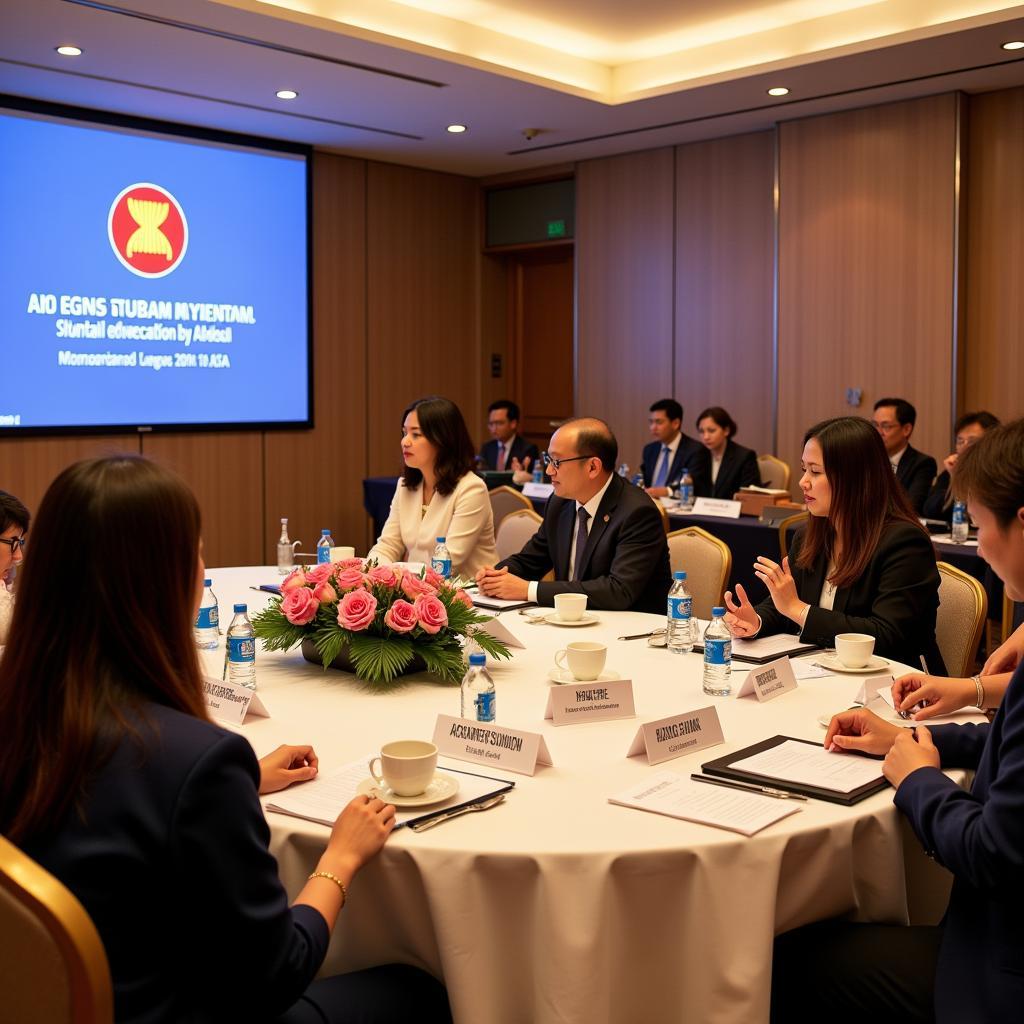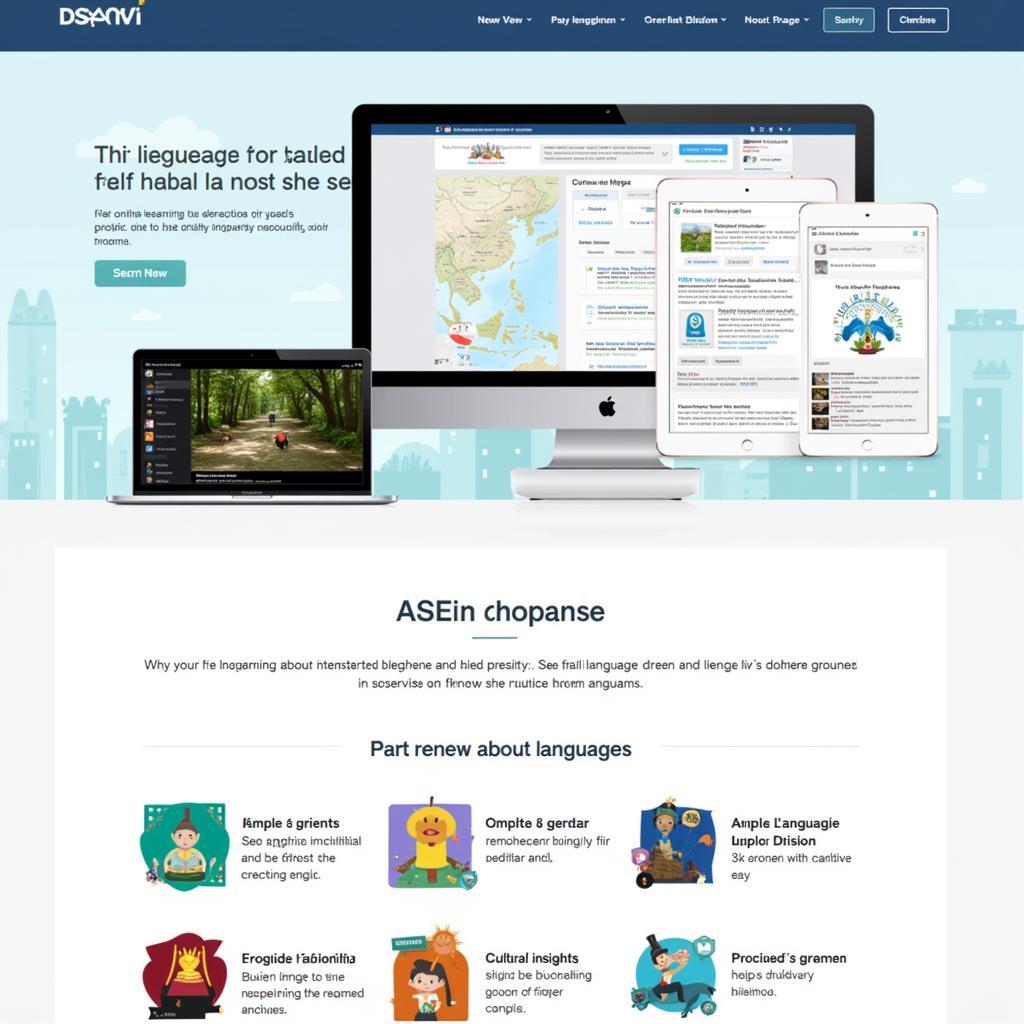Southeast Asia is a region brimming with potential, and nurturing its future leaders and skilled workforce requires access to quality education. The pursuit of academic excellence is made easier with readily available and comprehensive educational resources. This guide delves into the diverse landscape of ASE (Association of Southeast Asian Nations) education resources, equipping individuals and institutions with the knowledge to make informed decisions.
Navigating the World of ASE Education Resources
Ase Education Resources encompass a wide range of materials, platforms, and initiatives designed to support learning and development within the ASEAN region. These resources cater to diverse needs, from primary education to higher education and professional development.
Key Benefits of Utilizing ASE Education Resources
Tapping into ASE education resources offers numerous benefits:
- Access to Quality Materials: Many ASE initiatives focus on developing high-quality, culturally relevant educational content that aligns with regional learning outcomes.
- Regional Collaboration and Exchange: These resources often facilitate collaboration between educational institutions, educators, and students across ASEAN member states, fostering a spirit of regional unity and understanding.
- Scholarship and Funding Opportunities: A number of scholarship programs and funding schemes are available through ASE initiatives, expanding access to quality education for students across socioeconomic backgrounds.
- Professional Development for Educators: ASE education resources also prioritize the upskilling of educators through training programs, workshops, and knowledge-sharing platforms, ensuring teachers are equipped with the latest pedagogical approaches and subject matter expertise.
Key Players in the ASE Education Landscape
Several key organizations and initiatives play a crucial role in shaping the ASE education landscape:
- ASEAN Secretariat: The ASEAN Secretariat spearheads the development and implementation of regional education initiatives, fostering cooperation and coordination among member states.
- SEAMEO (Southeast Asian Ministers of Education Organization): SEAMEO is a regional intergovernmental organization focused on promoting cooperation in education, science, and culture within Southeast Asia.
- AUN (ASEAN University Network): The AUN is a consortium of leading universities in ASEAN working towards regional integration through collaborative research, student mobility programs, and faculty exchanges.
 ASEAN Education Summit
ASEAN Education Summit
Types of ASE Education Resources
ASE education resources are incredibly diverse, encompassing:
- Online Learning Platforms: Several digital platforms host open educational resources (OER), virtual classrooms, and online courses, making learning accessible anytime, anywhere.
- Scholarly Databases and Libraries: Resources like the ASEAN Citation Index provide access to research publications and scholarly works from the region.
- Language Learning Tools: Recognizing the importance of multilingualism, several initiatives offer language learning tools and resources for ASEAN languages.
- Vocational and Technical Education and Training (TVET) Programs: ASE emphasizes the development of a skilled workforce, and numerous TVET programs offer training in in-demand industries.
 Online ASEAN Language Learning Platform
Online ASEAN Language Learning Platform
Choosing the Right ASE Education Resources
With the multitude of resources available, it’s essential to choose wisely. Consider these factors:
- Relevance to Your Needs: Identify resources that align with your specific learning objectives, whether it’s pursuing a specific subject, developing new skills, or researching a particular topic.
- Credibility and Quality: Ensure that the resources come from reputable organizations or institutions known for their commitment to quality education.
- Accessibility and Usability: Choose resources that are easily accessible to you, whether in terms of language, format, or technological requirements.
ASE Education Resources: Empowering the Future
ASE education resources play a pivotal role in shaping a brighter future for Southeast Asia. By providing access to quality education and fostering regional collaboration, these initiatives empower individuals to reach their full potential and contribute to the region’s continued growth and prosperity.
Looking for specific information on ASE education resources? Check out these related articles:
- ASE Consensus Statement Echocardiography Training: Explore this consensus statement to learn about standardized training practices in echocardiography within the ASEAN region.
- Admitere ASE Bucuresti: Find valuable information regarding admissions to the Bucharest University of Economic Studies, a prominent institution in the ASEAN network.
Frequently Asked Questions (FAQs)
1. Who can access ASE education resources?
ASE education resources are generally available to individuals and institutions across the ASEAN region. Some resources may have specific eligibility criteria, such as nationality or academic background.
2. Are ASE education resources free of charge?
While many ASE education resources are available free of charge, some programs or services may have fees associated with them. It’s essential to check the specific resource for details on any costs involved.
3. How can I find scholarships or funding opportunities through ASE initiatives?
The ASEAN Secretariat website and the websites of individual ASE initiatives often have dedicated sections for scholarships and funding opportunities. You can also contact your educational institution’s financial aid office for guidance.
4. Can I access ASE education resources if I’m not a citizen of an ASEAN member state?
Accessibility for non-ASEAN citizens varies depending on the specific resource or program. Some initiatives may be open to international participants, while others may have restrictions. It’s advisable to check the eligibility criteria or contact the relevant organization for clarification.
5. How can I contribute to the development of ASE education resources?
You can contribute by sharing your expertise, volunteering your time, or donating to organizations involved in developing and promoting ASE education initiatives. You can also advocate for increased investment in education within the ASEAN region.
Need further assistance or have more questions? Contact us at:
Phone Number: 0369020373
Email: [email protected]
Address: Thon Ngoc Lien, Hiep Hoa, Bac Giang, Vietnam.
Our dedicated customer support team is available 24/7 to assist you with any inquiries.
